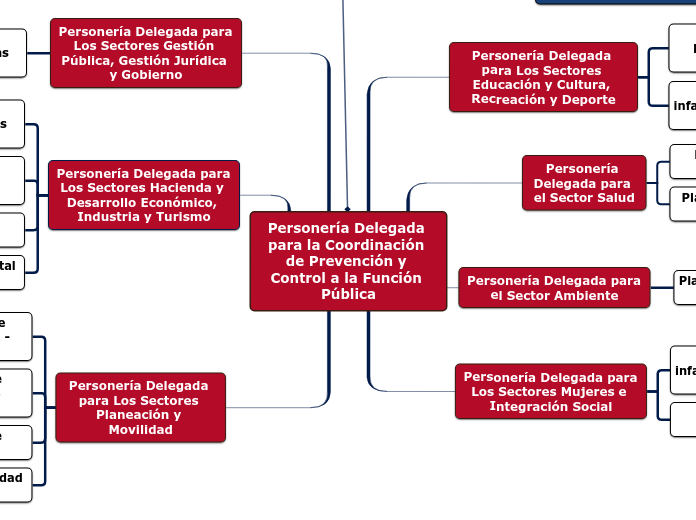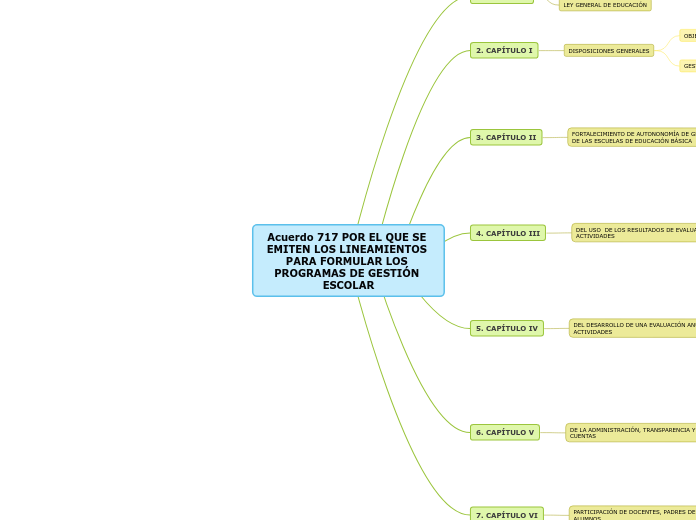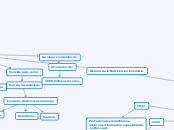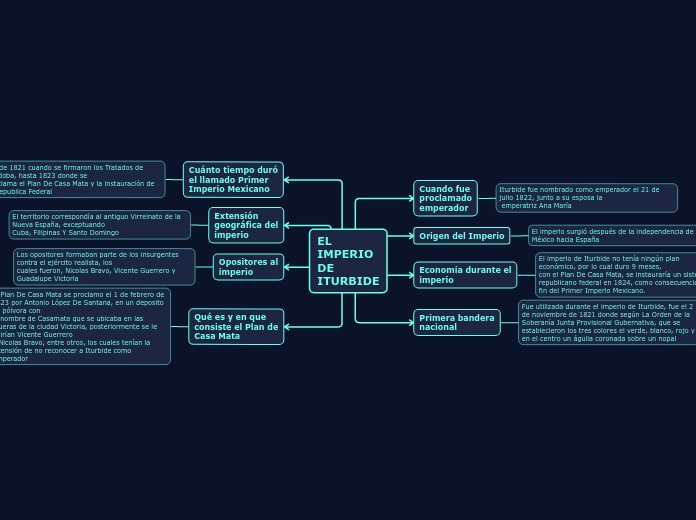MAPA DE CONOCIMIENTOS BÁSICOS
Conocimiento Transversal
Constitución Política de Colombia
Estructura orgánica y Funcional del Distrito Capital
Régimen Espacial Distirto Capital
Contratación Estatal
Plan Desarrollo Distrital
Administración de personal
Derecho administrativo
Personería Delegada para la Coordinación de Prevención y Control a la Función Pública
The first division between continents was made by ancient Greek navigators, who named them 'landmass, terra firma'.
Generally classified by convention rather than any strict criteria, nowadays seven regions are regarded as continents from a geopolitical point of view.
Personería Delegada para Los Sectores Planeación y Movilidad
Antarctica is not only the coldest place on Earth but also the highest, driest, windiest and emptiest, completely covered with ice.
75% of the world's ice and 70% of the Earth's fresh water is located here.
Summer months of December to February give 24 hours of light, while the winter months of late March to late September are pitch dark the whole day.
There are no permanent inhabitants, except for scientists maintaining research stations in Antarctica.
Plan Maestro de Movilidad Distrital
Modelo Integrado de Planeación y Gestión - MIPG
Personería Delegada para Los Sectores Hacienda y Desarrollo Económico, Industria y Turismo
You can find on this continent:
- the world's largest river as per water volume, the Amazon.
- the highest volcanoes of the world -- Mt. Cotopaxi and Mt. Chimborazo.
- the country, Brazil, which is the largest coffee producer in the world.
- the second-highest mountain range in the world, the Andes.
Normatividad sobre Urbanismo
Normatividad sobre ruralidad y asuntos agrarios
Personería Delegada para Los Sectores Gestión Pública, Gestión Jurídica y Gobierno
North America has five time zones and it is the only continent with every type of climate.
North America was named after the explorer Amerigo Vespucci and is also known as the 'New World'.
The world's largest sugar exporter among the seven continents - Cuba - also called the 'sugar bowl of the world' is located here.
Normatividad sobre Presupuesto y Finanzas públicas
Personería Delegada para Los Sectores Mujeres e Integración Social
Australia is the world's smallest continent and is also known as an 'island continent' as it is surrounded by water on all sides.
It includes 14 countries and it is the least populated continent.
Its name comes from the Latin word 'australis' meaning 'southern' because it lies entirely on the south of the equator.
Personería Delegada para el Sector Ambiente
Of the seven continents of the world, Africa is the second largest.
Africa comprises 54 countries and it is the hottest continent.
The equator passes through the middle of Africa and it receives direct sunlight throughout the year.
The world gets 66% of its chocolate, 50% of the gold and 95% of the diamonds from Africa.
Plan de Gestión Ambiental Distrital
Personería Delegada para el Sector Salud
Asia is the world's largest continent of the seven continents in size, as it covers one-third of the earth's surface.
It includes 50 countries, and it is the most populated continent, 60% of the total population of the Earth lives here.
Plan Territorial de Salud Bogotá, D.C.
Normatividad sobre Seguridad Social
Personería Delegada para Los Sectores Educación y Cultura, Recreación y Deporte
Europe is separated from Asia by the Ural mountains and the Caspian Sea.
It is surrounded by water on three sides: Mediterranean Sea in the south, Atlantic Ocean in the west, and the Arctic Ocean in the north.
Three-fourth of the world's potatoes grow in Europe.
Normatividad sobre infancia, juventud y adulto mayor
Normatividad sobre Educación, Cultura y Recreación









